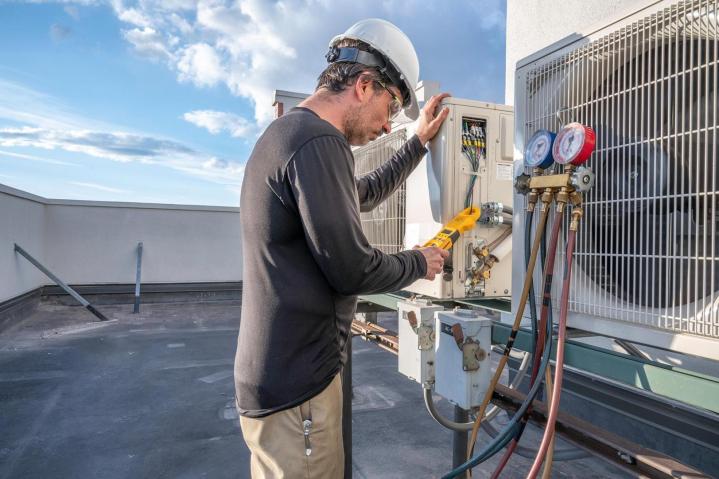What Type of Maintenance Does a HVAC System Need?, South Western Ontario

Don't sweat it out in the summer or shiver through the winter - our skilled HVAC repair team at Costa Mechanical Inc. is just a phone call away!
HVAC Maintenance near South Western Ontario: What Type of Maintenance Does a HVAC System Need?
Proper maintenance is essential for the efficient and reliable operation of an HVAC system. While specific maintenance tasks may vary depending on the type of system, here are some common maintenance activities that apply to most HVAC systems:
Regular filter replacement: Clean or replace air filters every one to three months, or as recommended by the manufacturer. Clogged or dirty filters restrict airflow, reducing system efficiency and potentially causing damage to the equipment.
Cleaning of components: Clean the evaporator and condenser coils, blower components, and other accessible parts of the system. Accumulated dirt and debris can hinder airflow and reduce performance. It's important to follow manufacturer guidelines for cleaning procedures.
Inspection of electrical connections: Check electrical connections and terminals to ensure they are tight and secure. Loose connections can lead to system malfunctions and may pose safety hazards. Turn off power before inspecting electrical components.
Lubrication of moving parts: Lubricate motors, fans, and other moving parts as specified by the manufacturer. Proper lubrication reduces friction, extends component life, and helps maintain smooth operation.
Condensate drain cleaning: Clear the condensate drain line regularly to prevent clogs and ensure proper drainage. A clogged drain can cause water damage and affect system performance.
Inspection of belts and pulleys: Check belts for wear and tension, and inspect pulleys for proper alignment. Replace worn belts and realign pulleys if necessary.
Calibration of controls and thermostats: Ensure that temperature and humidity controls are calibrated correctly for accurate and efficient operation.
Ductwork inspection: Inspect the ductwork for leaks, gaps, or damage that may impact airflow and efficiency. Seal any leaks or repair damaged sections of the ducts.
It's important to consult the manufacturer's recommendations and follow the maintenance guidelines specific to your HVAC system. Regular maintenance not only helps optimize system performance but also extends the lifespan of the equipment and improves indoor air quality.
HVAC Maintenance near South Western Ontario: Effective DIY HVAC System Maintenance Tips
While some HVAC maintenance tasks require professional expertise, there are several effective DIY maintenance tips you can follow to keep your HVAC system in good condition. Here are some recommendations:
Regularly clean or replace air filters: Check your air filters every one to three months and clean or replace them as needed. This simple task helps maintain good airflow and prevents dust and debris from accumulating in the system.
Keep outdoor units clean: If you have an outdoor unit, make sure it is free of debris such as leaves, grass, and dirt. Use a hose or gentle brush to remove any buildup on the condenser coils. Keep vegetation and obstructions away from the unit to ensure proper airflow.
Check and clean vents and registers: Regularly inspect your vents and registers to ensure they are not blocked or obstructed by furniture, curtains, or other objects. Vacuum or dust them to remove any accumulated dirt or debris.
Maintain a clear condensate drain line: Check the condensate drain line to ensure it is not clogged or blocked. Use a mixture of bleach and water to clean the drain line and prevent the growth of mold or algae. Refer to the manufacturer's guidelines for proper cleaning procedures.
Ensure proper insulation: Adequate insulation helps maintain a consistent indoor temperature and reduces strain on your HVAC system. Insulate ductwork in unconditioned spaces, such as attics and crawl spaces, to prevent energy loss.
Check for air leaks: Inspect doors, windows, and other potential areas for air leaks. Seal any gaps or cracks with weatherstripping or caulk to prevent air infiltration or loss.
While these DIY maintenance tips are beneficial, it's important to remember that professional HVAC maintenance is still necessary. Regular inspections and servicing by qualified technicians help identify and address potential issues before they escalate and ensure optimal performance and efficiency of your HVAC system.

